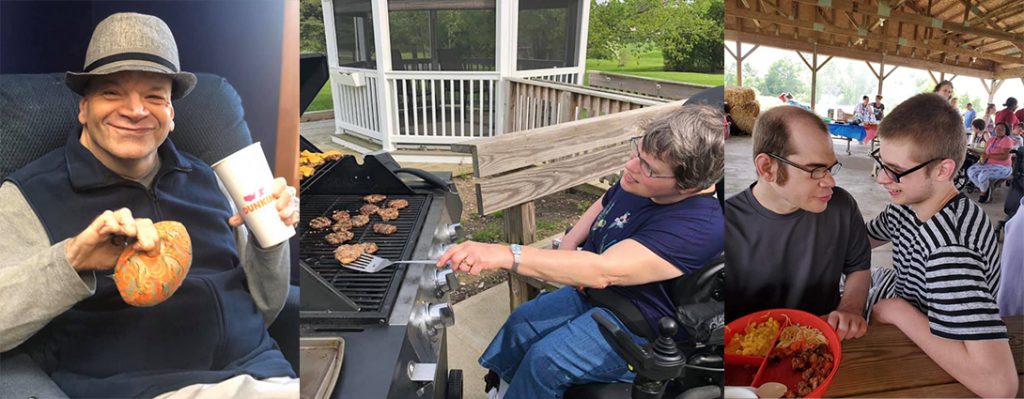At some point, many parents hear their young adults say ‘I want a place of my own’. And, they will gladly encourage them to spread their wings and fly – as this is what they have been preparing them for all these years. But, for a parent of an individual with disabilities, this can be concerning. Their minds become all too consumed with thoughts and fears.
Who will remind her to take her medication? Who will help him remember that only dark clothes go with dark clothes in the laundry, to bathe daily and to practice good hygiene? What if the stove is left on? How will she get up for her day service program because she is a deep sleeper? Will he get his own room because he needs to have quiet space? Will she be lonely?
Then, there are the aging parents asking, ‘who will be there for my child when I no longer am able.’
There are many unanswered questions in their minds!
The good news is there are many options for the individual as they approach this rite of passage. For this blog, let’s focus on the smaller group home setting typically accommodating six to eight persons.
In this type of setting, there is always someone there to oversee the day-to-day activities of life to ensure a safe, secure and productive environment. The team helps manage appointments, medication, transportation, and finances with a lot of guidance or just a little. What does this really look like for the individual calling it home?
A Place called Home:
Just like you and I have a home, this is the person’s home in the community. There’s a kitchen, dining room, living room, bedrooms, a laundry room, and utility room. Decorated and designed to suit the persons’ tastes. Like our home, there are rules and it often involves compromise generating continuity of those living together.
Socialization
A desire to be a part of something bigger than themselves often leads a person to seek living independently with other roommates. It’s not uncommon to hear persons with disabilities say they feel isolated with no opportunity to develop relationships. Many loved ones feel they are protecting the person by keeping them at home while in retrospect it can be more damaging than one could imagine.
Living in a home with other individuals provides a network of support, and an opportunity for friendship often promoting more independence.
Responsibility
As with any home, there are tasks and chores. All individuals help with housekeeping chores based on their capabilities, and the team assists as appropriate. From planning the day’s meals and prepping them to clearing the dining room table and loading the dishwasher, there are responsibilities that come with living in your own home and individuals experience satisfaction in caring for their own home.
Recreation
We all have hobbies and leisure activities that bring us joy! In a smaller group home setting, the opportunity to experience the pleasures that bring joy is much more readily available. Whether it’s attending a baseball game, going to the movies, gardening or sitting in the warm sun on the patio, individuals get to choose the activities in which they participate and/or plan their own calendar.
Self-fulfillment
Whether it’s working at a place of business in the community, taking classes, attending a day service program or volunteering at a non-profit, each individual has the opportunity to explore their interests and then will be given the tools to pursue.
Safe and Secure
Moving into a group home provides the individual and often loved ones with the needed reassurance that there will be help and guidance, as well as round the clock supervision to maintain a safe and secure environment where certain aspects of daily living are overseen.
In a nutshell, these are just a few of the many benefits of living in a smaller home setting for individuals with disabilities. There are many organizations that offer this program and service model, but it is important to make sure whichever home you choose is where the person or the loved one will feel safe, secure and dignified.
Echoing Hills provides homes for individuals with intellectual and/or developmental disabilities all over the state of Ohio. By using person-centered practices and ensuring that the values of choice, dignity, fulfillment, and relationship are practiced, Echoing Hills provides safe and comfortable homes where individuals can practice self-advocacy and personal growth. To learn more, visit https://ehvi.org/residential-services/
A Place to call Home


